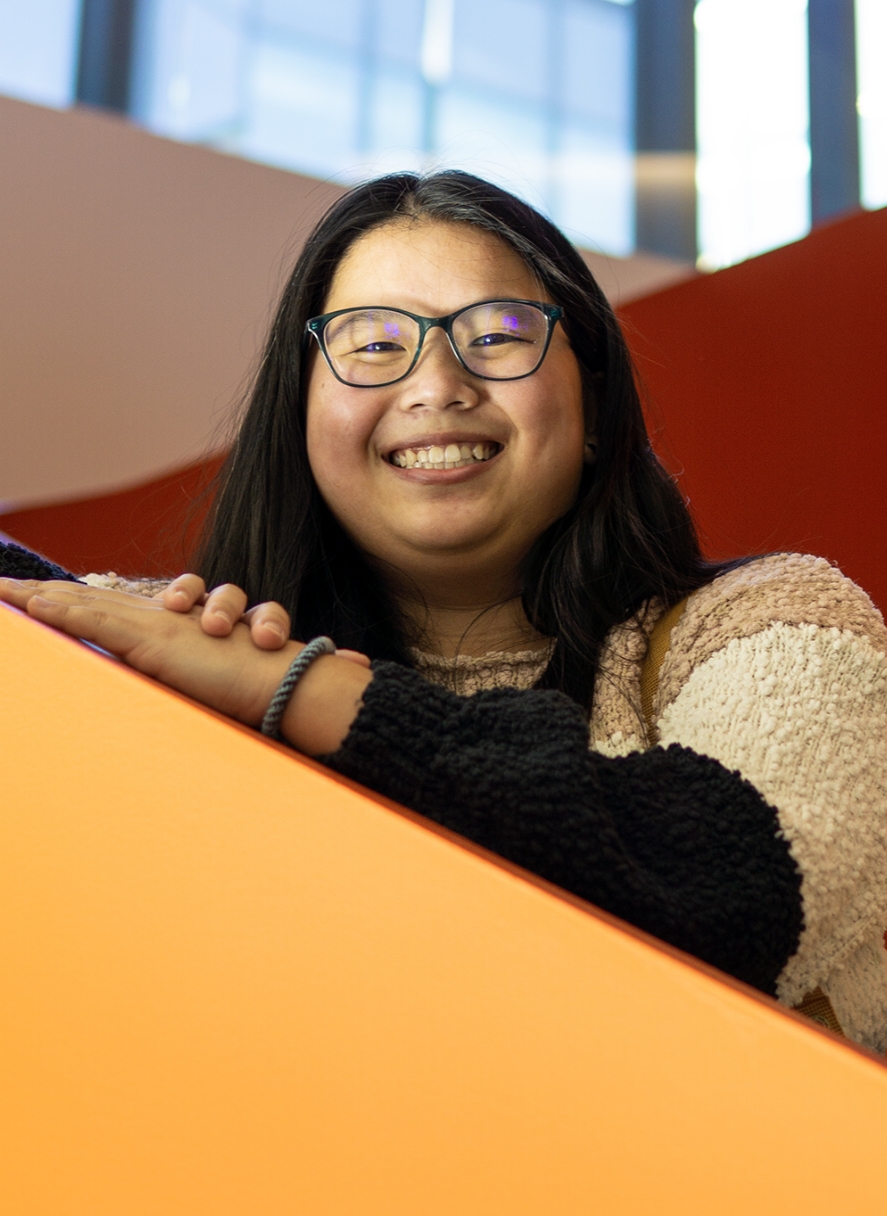In the fall 2006 issue of HMC’s magazine, in response to the prompt “Leadership is …” Maria Klawe responded “Enabling others to succeed.” Here, we feature an alumna who shares how Klawe influenced her life and career.
Sophie Poole ’25 first met President Maria Klawe when she was 15 years old. Then, she was working on a project for Engineer Girl, an organization that brings national attention to the exciting opportunities that engineering represents for girls and women.
Poole, who was adopted from China when she was 10 months old, worked especially hard to showcase these possibilities and careers to girls who had not come from places where they had easy access to STEM education. But she was also worried that she wasn’t the right person to be talking to middle school girls about STEM, even though she wanted to show them the opportunities they could find in those fields.
So she conducted video interviews with women in STEM-related fields. “By showing them role models, I was hoping they would gain courage within themselves,” she says, and that, just through sheer curiosity, they’d hear something in one of these talks and run with it on their own.
Klawe was one of the people Poole asked for an interview, and they talked about what it was like to be the president of a college, especially a STEM-focused one. Klawe also helped Poole see that she was more than capable of mentoring younger girls, no matter what her age. “She really helped me with that project. It’s one of the best things I’ve done with my life,” Poole says.
Not only is that conversation between Klawe and Poole still shown to middle school girls and members of SWENext, the Society of Women Engineers’ youth program and at National Academy of Engineering Conferences, but it also gave Poole confidence in her ability to be a mentor—and to be herself as well. In high school, Poole was being told that that if she wanted to compete with men, especially in male-dominated fields, that she had to be aggressive and overpowering.
“Maria wasn’t like that. She was authentic and wanted to bring out the best in everybody. She talked about how she would ask for other people’s ideas and opinions and build on that,” she says. “I thought, that is real leadership, not pushing others down to get on top.”
President Klawe also encouraged her to apply to Harvey Mudd College, to succeed here and take risks, whether that was studying a subject she didn’t know much about or trying out innertube water polo.
Poole also learned that science—and academia in general—doesn’t have to be so serious or stiff. On walks around campus, Klawe was friendly and open in ways that Poole assumed a college president wouldn’t be. Klawe also talked about her hobbies outside of school, like painting. Every year, Klawe painted a scene from Harvey Mudd College for holiday cards, including one of squirrels on campus. “To see that kind of humor in a president is amazing,” Poole says.
Likewise, when Poole found out they shared a love of key lime pies, she made one for Klawe in a pie dish with all the numbers of π on it, a fun play on words and math concepts.
Poole isn’t sure yet what she’ll do with her Harvey Mudd degree but knows she’ll pursue a career in STEM. This mentorship and friendship with Klawe has given Poole belief in herself and her abilities and has inspired her to keep mentoring, too. “I could see parts of her that I want to become,” she says of Klawe. “I’m not planning on being a president of a college, but for any leadership position, I’ve become a lot more confident with myself.”
She also wants to take Klawe’s approach to learning and work: that it’s a lifelong journey. “When she was talking about retiring, it wasn’t in a negative way,” says Poole.
She’s also inspired by Klawe’s continuing commitment to women in STEM. “I thought that was amazing, that retirement doesn’t mean that you just stop, but that you do all that you can. She’s just nonstop,” Poole says. “Most people would stop, say they’re satisfied and leave. She knows there’s still more this world needs, and she’s determined to do it.”
